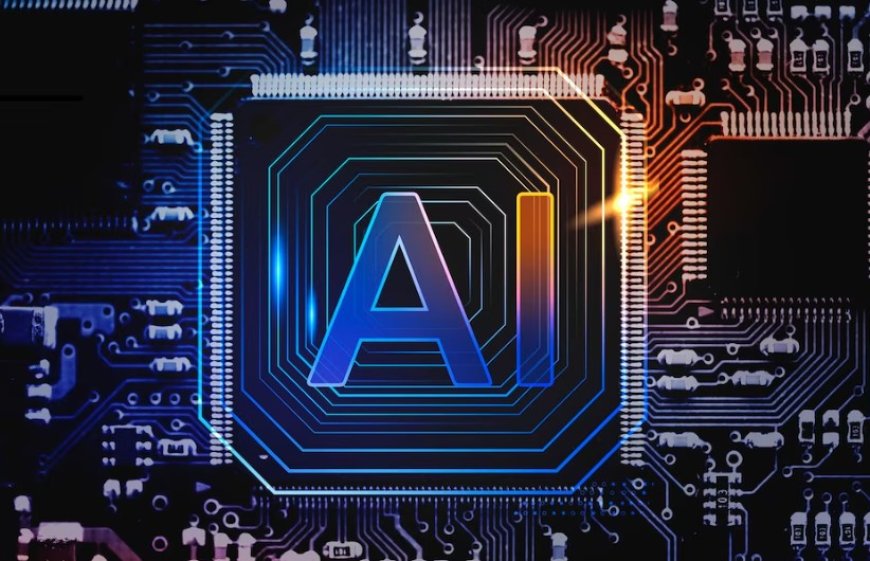Artificial Intelligence: A Modern Approach
The future of data science with Artificial Intelligence: A Modern Approach, exploring cutting-edge techniques and trends in AI.

Artificial Intelligence (AI) has become an integral part of our lives, revolutionizing the way we live, work, and interact with technology. From voice assistants and self-driving cars to personalized recommendations and advanced medical diagnostics, AI is transforming various industries and opening up new possibilities. In this blog, we will delve into the world of Artificial Intelligence, exploring its key concepts, applications, and the future it holds.
Understanding Artificial Intelligence
At its core, Artificial Intelligence refers to the development of intelligent machines that can perform tasks that typically require human intelligence. These machines are designed to perceive their environment, reason, learn, and make decisions, emulating human cognitive abilities. AI encompasses various subfields, including machine learning, natural language processing, computer vision, and robotics, each contributing to different aspects of AI development.
One of the most prominent examples today is the rise of the ai video surveillance system, where platforms like Coram use advanced analytics to detect unusual activities and enhance real-time monitoring for safer environments. This showcases how AI-driven systems are reshaping modern security infrastructures.
Applications of Artificial Intelligence:
Artificial Intelligence finds applications in diverse domains, bringing about transformative changes. In healthcare, AI aids in diagnosing diseases, analyzing medical images, and personalizing treatment plans. In finance, AI algorithms power fraud detection systems, automate trading, and provide personalized financial advice. AI is also making strides in education, entertainment, transportation, and many other sectors, enhancing efficiency, accuracy, and user experience.
Machine Learning: The Backbone of AI
One of the key components of AI is Machine Learning (ML), a subset of AI that focuses on enabling machines to learn from data without being explicitly programmed. ML algorithms allow systems to recognize patterns, make predictions, and adapt to new information. Supervised learning, unsupervised learning, and reinforcement learning are the three primary types of ML, each serving different purposes and applications.
Natural Language Processing and Computer Vision
Natural Language Processing (NLP) enables machines to understand, interpret, and generate human language. It plays a vital role in voice assistants, language translation, sentiment analysis, and chatbots. Computer Vision, on the other hand, focuses on enabling machines to understand and interpret visual data, opening up possibilities in image recognition, object detection, and autonomous vehicles.
Ethical Considerations in Artificial Intelligence
As AI becomes more pervasive, it is essential to address ethical considerations. Issues such as bias in algorithms, privacy concerns, and the impact on employment need to be carefully addressed. Developing responsible AI systems that are transparent, fair, and accountable is crucial to ensure that AI benefits all of society and avoids negative consequences.
The Future of Artificial Intelligence
The future of Artificial Intelligence holds immense promise. Advancements in AI research, coupled with growing computing power and data availability, are driving the development of more sophisticated AI systems. We can expect AI to play a significant role in tackling complex global challenges, including climate change, healthcare disparities, and resource management. AI will continue to evolve and shape the world in ways we cannot yet fully imagine.
Embracing Artificial Intelligence
As AI continues to advance, it is essential for individuals and organizations to embrace it. Understanding the capabilities and limitations of AI systems is key to harnessing its potential effectively. Organizations can leverage AI to automate mundane tasks, enhance decision-making processes, and unlock valuable insights from data. Individuals can explore AI-driven tools and technologies to improve their productivity, creativity, and quality of life.
Together, we can explore the limitless possibilities of Artificial Intelligence and contribute to its ongoing development. As AI continues to evolve, it is essential to foster a collaborative and interdisciplinary approach. Engineers, data scientists, ethicists, policymakers, and individuals from all walks of life must come together to shape the future of AI in a way that aligns with our values and priorities.
Additionally, as we embrace Artificial Intelligence, it is important to nurture a culture of continuous learning. AI technologies and algorithms are constantly evolving, and staying updated with the latest advancements is crucial. This could involve taking courses, attending conferences and workshops, or engaging in online communities where knowledge is shared and exchanged. By actively participating in the AI community, we can contribute to its growth and ensure that it remains a force for positive change.
Moreover, ethical considerations must always be at the forefront of AI development and implementation. Transparency, fairness, and accountability should guide our decisions, ensuring that AI systems are unbiased, respectful of privacy, and promote societal well-being. By actively addressing ethical challenges, we can build trust in AI and foster its responsible adoption across various domains.
However, with great power comes great responsibility. As AI becomes increasingly integrated into our lives, we must address important considerations. Ethical dilemmas, such as privacy, transparency, and bias, must be carefully navigated to ensure that AI benefits society as a whole. It is crucial to establish regulatory frameworks and guidelines that govern the development and deployment of AI systems, protecting individuals and upholding values of fairness and accountability.
To fully leverage the potential of AI, we must also foster a diverse and inclusive community. By encouraging collaboration and embracing different perspectives, we can unlock new insights and drive meaningful progress. The future of AI requires individuals from various backgrounds and disciplines to come together, share knowledge, and collaborate on solving complex problems.
Furthermore, the field of AI is constantly evolving. As technologies advance and new research emerges, it is important for professionals in the field to engage in continuous learning. Staying updated with the latest developments, exploring new algorithms and techniques, and keeping pace with industry trends will enable us to stay at the forefront of AI innovation.
Lets conclude todays blog on a good note "Artificial Intelligence: A Modern Approach" provides a comprehensive and insightful exploration of the field of AI. It covers various topics ranging from problem-solving and knowledge representation to machine learning and natural language processing. The book emphasizes the importance of understanding AI not only from a technical perspective but also from a philosophical and ethical standpoint.Throughout the book, the authors highlight the potential of AI to revolutionize industries and improve our daily lives. They also address the ethical implications and challenges that come with the development and deployment of AI systems. By raising awareness of these issues, the book encourages readers to approach AI with a sense of responsibility and to consider the impact it has on society.
As the field of AI continues to evolve at a rapid pace, the book underscores the need for lifelong learning and staying updated with the latest advancements. It encourages readers to engage in continuous education, explore emerging technologies, and apply AI in novel ways to tackle real-world problems.
Overall, "Artificial Intelligence: A Modern Approach" serves as an excellent resource for anyone interested in understanding the principles and applications of AI. It not only provides a solid foundation in AI concepts but also sparks curiosity and encourages readers to delve deeper into the exciting and ever-changing field of artificial intelligence. By adopting a friendly and collaborative approach, we can harness the power of AI to drive positive change and shape a better future for humanity.





























































